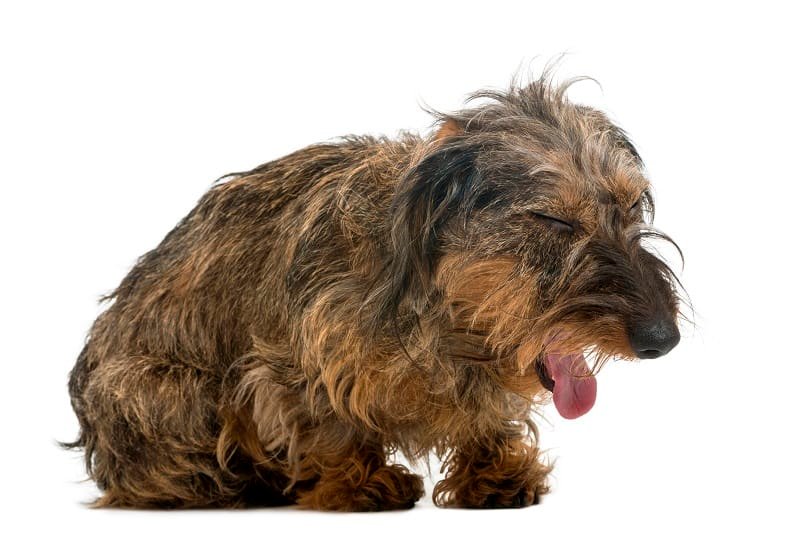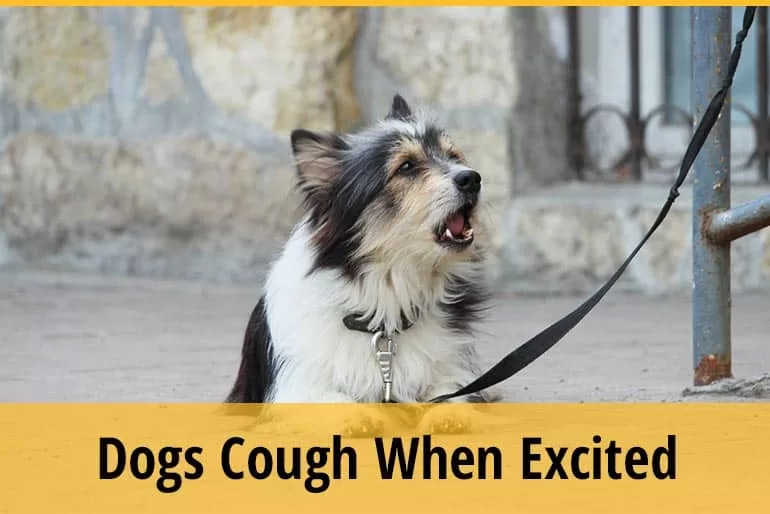Dog cough when excited? Does your dog ever exhibit any behavior related to coughing and gagging when excited?
When a dog is so excited, he breathes a little harder and faster, which irritates his respiratory system and causes him to cough.
If you notice that he does constantly or the frequency increases, schedule an appointment with your veterinarian.
Often, a cough is a sign of a mild respiratory infection or something in a pet’s throat.

If your dog has had a lot of dogs in the dog room recently, in the dog park, or anywhere, he may have a kennel cough, which is the most common cause of cough in dogs.
Although the initial symptom is only a cough, you will soon notice that your dog is becoming more tired/lethargic, has a fever and clear nasal discharge.
If the problem is more chronic and not accompanied by other symptoms, you may still want to check with your veterinarian to rule out a bacterial infection in the lungs, nasal passages, or throat or use Natural Cough Support for Cats and Dogs as a home remedy.
In the meantime, here are some common causes that explain Dog cough behavior.
1. Cough due to Tracheal collapse
Your dog may have a common health disorder called collapsed trachea. It is an inherited disorder in which the supporting structures of the airways are less rigid than they should be. In some cases, when the dog is excited, the trachea may collapse and this can cause the dog to cough and sneeze.
Also Read: 7 Reasons to have a fluffy bed for dogs
Tracheal collapse is common with small-breed dogs such as Yorkies. It can occur at any age but it usually appears after the dog is six to seven years old.
You may notice that dogs with airway collapse conditions experience a chronic, intermittent cough, and these sessions become more intense when the dog is excited.
2. Dog Cough due to reverse sneezing
Coughing also results from a condition called reverse sneezing. This often happens after the dog has extended the head and neck, then begins to inhale repeatedly through the nose. When they do, you will hear a “snoring” sound every time the dog inhales.
Reverse sneezing usually occurs when the dog is aroused but it can also occur in other situations when your dog is eating, drinking, or wandering around.
Although this may seem alarming, reverse sneezing is usually not harmful to the dog.
3. Dog Cough due to respiratory disease
The cough may be the result of a respiratory illness such as kennel cough. Moreover, it is more likely to occur only in places where other dogs gather, such as a dog park or dog boarding kennel.
A dog with kennel cough will begin to experience a large cough along with other respiratory symptoms such as runny nose, sneezing, and low fever.
Another condition that your dog suffers from is chronic bronchitis, which causes inflammation in the airways.
This makes it very difficult for dogs to breathe, especially when they are excited. Dogs with bronchitis usually exhibit a dry cough.

